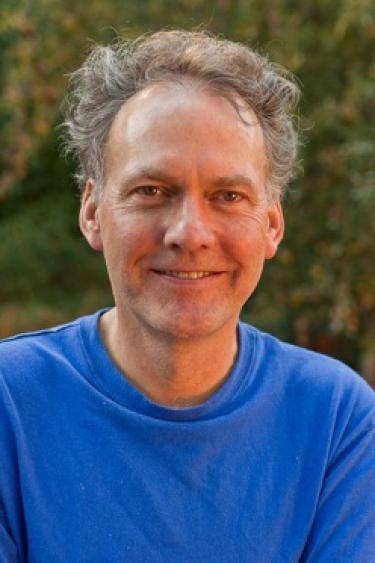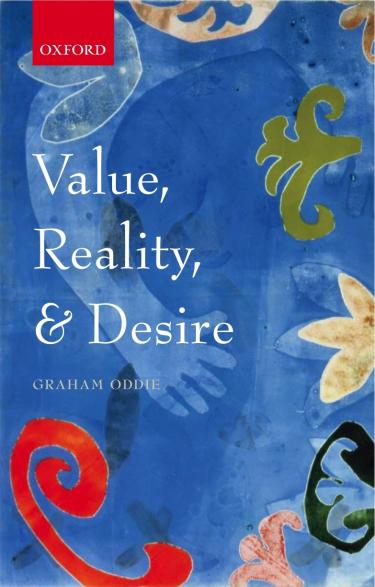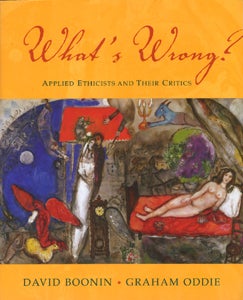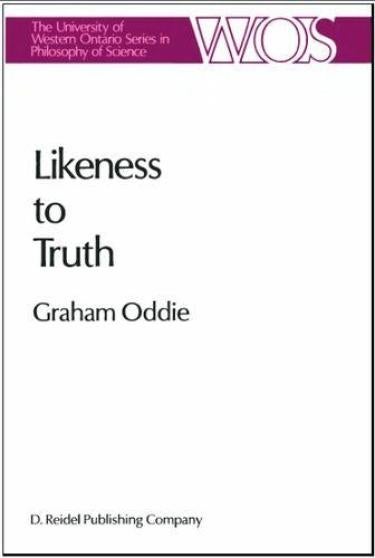
HLMS 274
GRAHAM ODDIE (PhD, London, 1979) began studying philosophy at the University of Otago (New Zealand). While Oddie was an undergraduate at Otago, Sir Karl Popper came for a year as a Visiting Professor. The Otago faculty were all instructed by the Chair to discuss Popper's ideas in the weekly colloquium. When it came to his turn, Pavel Tichý proved that Popper's theory of truthlikeness had the following devastating consequence: that no false proposition could be closer to the truth than any other. This was a disaster for Popper's account of scientific progress but for Oddie it came as a pleasant revelation: that in philosophy you could actually prove interesting stuff. This made a life in philosophy seem attractive. Not long after that, he began working with Tichý on a new idea for truthlikeness, and wrote a PhD on the topic at the London School of Economics, which morphed into the first book-length treatment of the topic: Likeness to Truth (Reidel, 1986). Oddie returned to Otago as a Lecturer, moving a few years later to be Professor and Chair of Philosophy at Massey University, and thence to CU Boulder in 1994. He served as Chair of the Philosophy Department for several years, and then as Associate Dean for Humanities and the Arts for several more. These days he is happy being a full-time philosopher again.
Areas of Interest: Metaphysics, Value Theory, Metaethics, Formal epistemology, Philosophical Logic, Aesthetics.
Current Research: current research is focused on metaphysics (in particular, a general role ontology), value theory (realism, additivity, epistemology), desire, preference, and cognitive value.
For more information, see Professor Oddie's personal website,entry on the PhilPapers website, and CV.
Selected Papers
- "Thinking Globally, Acting Locally: Partiality, Preferences and Perspective", Les Ateliers De L'Éthique (La Revue de Créum)(forthcoming 2015).
- "Truth and Truthlikeness", in Glanzberg, M. (ed.) Oxford Handbook of Truth (Oxford: Oxford University Press, forthcoming 2015).
- "Desire and the fitting attitude theory of value", in Deonna, J. and Lauria, F. The Nature of Desire (Oxford University Press, forthcoming 2014).
- "What do we see in museums?" in Philosophy (forthcoming 2014).
- "Value and desires" in Olson, J. and Hirose, I. (eds.) Oxford Handbook of Value (Oxford University Press, forthcoming 2014).
- "Truthlikeness", Stanford Encyclopedia of Philosophy(February 2014), Edward N. Zalta (ed.), URL =http://plato.stanford.edu/entries/truthlikeness/
- "Value realism", in LaFollette, H. et al. (eds.) International Encyclopedia of Ethics (Oxford: Wiley Blackwell, 2013).
- "Content, consequence and likeness: on three approaches to verisimilitude and their compatibility" Synthese June 2013, Volume 190, Issue 9, pp 1647-1687. (Published online at:http://www.springerlink.com/content/r53548780g7273g5/)
- "Experiences of Value," in Charles Pigden (ed.), Hume, Motivation and Virtue (Palgrave Macmillan, 2009), 121-141.
- "The Fictionalist's Attitude Problem," (with Dan Demetriou)Ethical Theory and Moral Practice 10 (2007): 485-498.
- "A Refutation of Peircian Idealism," in Colin Cheyne (ed.),Rationality and Reality: Conversations with Alan Musgrave(Dordrecht: Kluwer, 2006), 255-262.
- Value, Reality, and Desire (Oxford University Press, 2005). Chapter 1 can be found here.
- "Recombinant Values," Philosophical Studies 106 (2001): 259-292.
- "Scrumptious Functions," Grazer Philosophische Studien 62 (2001): 137-56.
- "Hume, the Bad Paradox, and Value Realism," Philo 4 (2001): 109-22.
- "Axiological Atomism," Australian Journal of Philosophy 79 (2001): 313-332.
- "Permanent Possibilities of Sensation," Philosophical Studies98 (2000): 345-59
.




